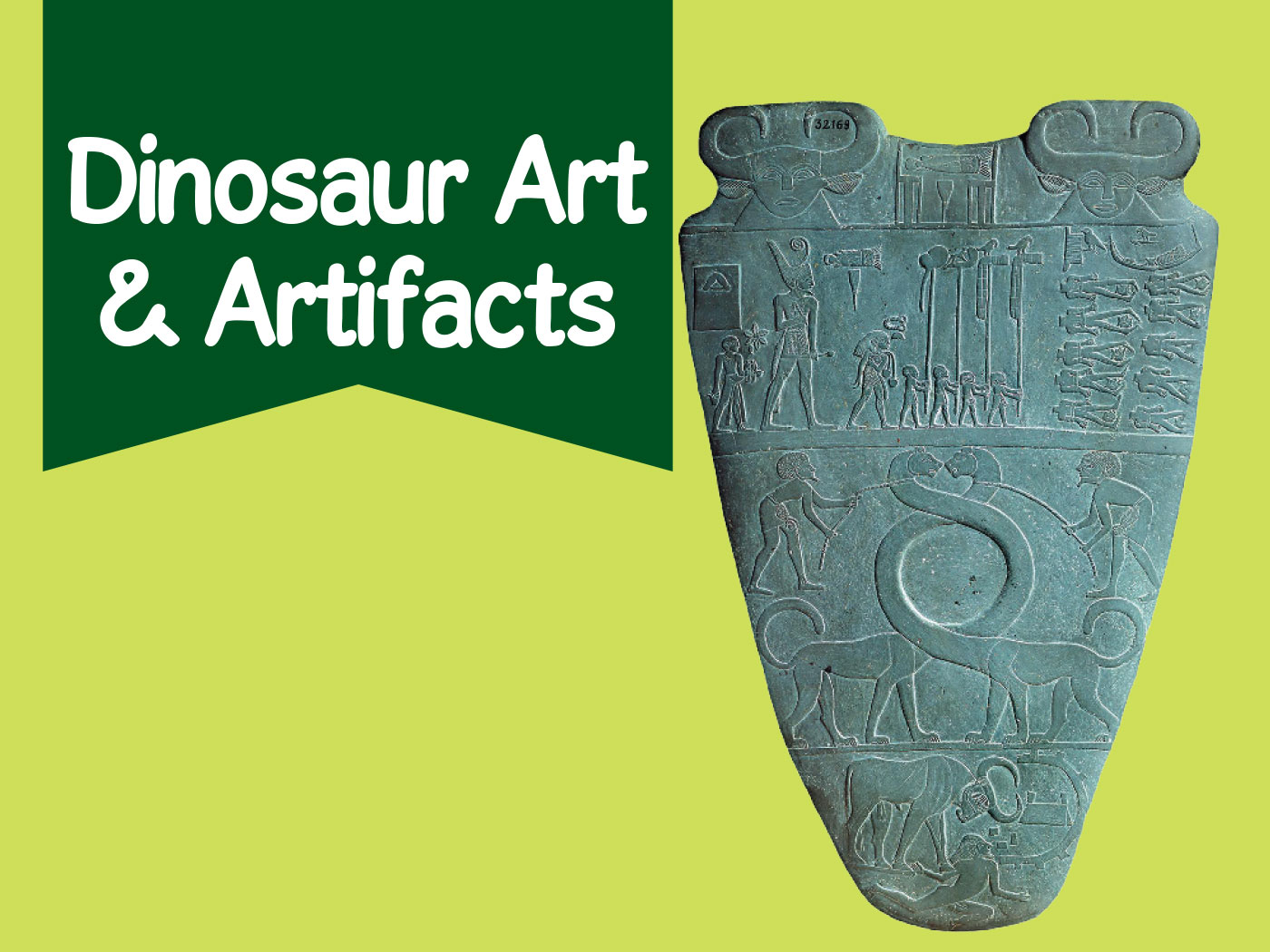Holiness! Omnipotence! Just exclaiming these attributes focuses our attention where it should rightfully go—to God. Another attribute often overlooked is that God is the great revealer. This means that not only does God make Himself known through various acts of revelation, but that God is revelatory. By His very nature God will make Himself known. Christians should be very thankful that God is revelatory, else they could never savor that satisfying sense of wonder felt from discovering all of His wonderful attributes that He graciously reveals.
Since God reveals much about Himself through His creation and the theory of biological design (TOBD) necessarily identifies engineered elements in His created biological realm, a valuable association between God’s revelation and biological observations is likely awaiting discovery. For creationists eager to ultimately think about creatures through an engineering framework, let’s start down that path.
Let's imagine beginning our approach to studying biology soon after Charles Darwin published his antibiological design views that greatly contrasted with most of his predecessors’. So, envision crafting the basic assumptions for a TOBD from this point in history.
First, we’ll ask some basic questions about what we can hope to learn from studying biology. Would biological research uncover purposeful, coherent systems or a slew of disconnected, chaotic messes? Research assumptions are tied to our answers.
Second, is there anything in biblical teaching about the natural environment that relates to answering those questions? Will it also be useful in building assumptions? This will take us to a condensed, foundational lesson on the definitions, educational purposes, and limitations for the two major types of God’s revelation: special and general. The article establishes a biblically faithful creationist perspective about revelation.
Third, we’ll dig into an expanded translation of one the Bible’s definitive passages about general revelation. The enlightening exposition of that passage will teach us basic characteristics of nature as revelation.
Finally, we’ll use these newly uncovered characteristics about general revelation to answer the basic questions about what we anticipate learning from biology. All of this information coalesces around a strong biblical justification for an engineering-oriented approach to biology. We’ll end on crafting several biblically informed and engineering- based key assumptions for a TOBD.
Thus, an understanding of key biblical truths about the characteristics of God’s revelation proves useful in developing a TOBD.
Questions About Biological Research and Engineered Biology
All scientific theories rest on core assumptions. As ICR and other groups develop the basic assumptions of a TOBD,1 some fundamentally important questions arise concerning the nature of biology itself, what we can hope to learn from studying it, and the proper perspective for approaching research. For instance:
- When we look strictly at physical biological operations, say, in organs or cells (not the soul, consciousness, the essence of life, etc.), do we anticipate that the type of operations discovered in creatures can be understood by humans or expect processes completely foreign to human experience?
- If researchers continue to dig into the operation of physical systems, is there hope that they will continue to discover, or will research stop someday because they will reach areas that are incomprehensible?
- Will humans need a special answer key from God to understand physical biology?
- As we study any creature, should we assume that it is a finished product (yet engineered to purposefully adapt within specified parameters) that can be reverse engineered and through a methodical research path yield decipherable results, or are organisms never finished works in progress whose ancestry of adding and deleting features was so chaotic that today’s researchers should anticipate heading down tangled or even contradictory paths to discovery?
- Will there be any similarities between the operation of biological functions and human-engineered machines? Should biology yield (a) any basic unifying principles (b) that generally extend to all creatures? Would (c) anything be explainable by human engineering principles, or is it a messy mish-mash of perhaps unrelated types of systems that over eons have been randomly cobbled together in extremely diverse environments?
It is important to clarify that though these questions seem related to whether organisms arose through natural processes or God created them, they are not directly related to that distinction. Instead, they relate to whether the operation of biological functions is even discoverable by a human mind. Did God create biology in a way to stump human research and, thus, attempts to develop a TOBD are simply a waste of time? Given that God created creatures doesn’t mean that humans can assume we can figure out how they work. God, in His infinite knowledge and total freedom of action, could have made creatures’ operations so unlike any human contrivances that we could be totally baffled about biological operations and clueless on where to begin research.
How the minds of creationists (and TOBD developers) even frame these types of questions has a profound effect on what their research programs investigate. For instance, ICR’s researchers think about cavefish using the TOBD’s assumptions that are fundamentally different from those of selectionism. We, therefore, craft different research inquiries.
But, why should ICR’s researchers assume that the TOBD’s assumptions are accurate? That’s where knowing what the Bible says about the characteristics of how God has revealed Himself is important. They’ll provide useful information for a TOBD’s foundational assumptions.

As I recall studying at Moody Bible Institute, whole chapters in theological treatises are dedicated to the character, extent, and modes of God’s revelation. To greatly simplify the topic, theologians characterize God’s revelation to humanity as either special or general.
The Bible is special revelation. The Bible is information given and inscribed “specially” (or “selectively”) through “holy men of God [who] spoke as they were moved by the Holy Spirit” (2 Peter 1:21). It also records the special revelation of the Lord Jesus Himself through His words and actions that also revealed the Father to us (John 14:7–9). For anyone to be saved today, they must believe in Jesus since “there is none other name under heaven given among men, whereby we must be saved” (Acts 4:12). Thus, the Bible’s special revelation is both essential for, and a sufficient guide unto, salvation.
Creation scientists research the physical, “natural” world that has been “generally” observable to all people since Adam. Anyone who observes nature could reasonably ask themselves if specific characteristics of nature’s features reveal insights into the character of a very intelligent and powerful being that was the originating cause of nature. That’s general revelation and why it’s important to creationists.
A rarely discussed crucial point is that general revelation has elements that are inherently comparable to elements observed in human workmanship. Any resemblances observed in nature greatly constrain potential explanations for its origin. This correspondence (in purpose, operation, qualities, assembly, parts, systems, etc.) leads people to a powerful intuition that natural systems, particularly creatures, were created. Human responses to that intuition range from questions to investigations, imaginative speculations, indifference, and even denial.
In regard to salvation, natural revelation is evident throughout the world so that every people group proceeding from Adam and Eve could perceive sufficient characteristics of creation to know the reality of a creator. General revelation coupled with God’s revelation through the human conscience of right and wrong (if that conscience is “pure” and hasn’t been “defiled,” become “evil,” or “seared,” Romans 2:14–16) can heighten within people a sense of God’s reality and their accountability. These are necessary but insufficient for salvation apart from believing in Jesus as revealed in the Bible.
Diving into General Revelation by Expositing Romans 1:18–25

There’s no substitute for digging into the biblical text to mine nuggets of truth for a clearer understanding. Psalm 19:1–6 and Romans 1:18–25 are key passages stating that some attributes of God are revealed in nature. English translations are accurate and profitable for instruction. Yet, translations are often limited by conciseness. Some valuable information found in the original language doesn’t carry over. So, thorough preachers usually expound upon the translated text. Compare Romans 1:18–25 in your Bible to my expanded translation that includes background material from analytical and Greek lexicons, expository dictionaries, and grammar manuals.5
1:18 God’s wrath is revealed from heaven against the lack of respect of God’s position, an irreverent disregard of Him, and the sinful behavior of mankind, who suppress the truth—an evil act in itself.
1:19 The thing capable of being known about God is plainly recognizable by the appearance of things to them, for God has made it undeniably evident to them.
1:20 Unseen things of God are knowable from His agency causing the totality of the natural realm, we call nature, to exist. In contemplating His workmanship2 of things, mankind, in fact, clearly sees so as to make deductions about God’s unseen attributes, namely, His unending inherent abilities and divine nature. So, mankind is without excuse,
1:21 because when they gained this insight through experience, they actively did not acknowledge or credit the true God as God in status as Creator or give thanks.3 Conversely, mankind’s reasoning about cause and effect drifted into foolishness, and their insensible mental life lost its ability to perceive clearly.
1:22 Claiming that they are the product of scholarship, they revealed that they had, in fact, slid into foolishness
1:23 and exchanged the credit due to the immaterial Creator God for substitute material representations of nature resembling man, and birds, and four-footed animals, and reptiles.
1:24 Therefore, they were delivered over by God to act out their thoughts produced by burning desires to continually let their bodies be degraded by one another,
1:25 who exchanged the truth about God for a lie, or the true God for the false god,4 not only falling into adoration of, but also reverentially serving, the created material realm of nature, contrary to the Creator, who is praised by His handiwork in creation endlessly. Amen.
A splendid truth about the Bible is that it’s always relevant for today—for whoever and whenever the “today” happens. This passage accurately characterizes God’s revelation in nature and the human response to it in Paul’s day, before then, and today. The thrust of the passage highlights the ungodly (e.g., disrespectful to God, idolatrous veneration of nature) and unrighteous (immoral, unthankful) behaviors of people who suppress clearly intuitive truths about God.
But what is important to the development of basic assumptions for a TOBD is what can be learned from the characteristics of general revelation, that it
- is plainly recognizable by appearance through human experience,
- is undeniably evident,
- shows confirmations of incredible workmanship,
- and is complete enough to make inferences about cause and effect.
Therefore, nature itself is a powerful type of revelation since unseen attributes of God are knowable from His clearly seen workmanship.
It should also be understood that general revelation is what’s observed. It doesn’t equate to scientists’ opinions and pronouncements (correct, critical, or wildly erroneous) about it, despite how some Christians almost unquestioningly and incorrectly conflate general revelation with the most recent published reports of conventional scientists.
Application of General Revelation to TOBD Assumptions
We should now consider whether there’s a point along the path of deeper research where scientists can go no further because they’re totally stumped or if they’ll someday need to get information directly from God (i.e., special revelation) in order to proceed. If that were to happen, then the created realm would cease to be general revelation for those scientists. It would no longer reveal attributes of God that Romans 1 states is His will for creation. How is God glorified when learning something new about Him from His creation ceases? It seems, therefore, the created realm will always be revelation to whoever observes it—from children to doctorates. Couple that to the above characteristics of general revelation and we can deduce the following points:
- the operation of biological functions will be discoverable by humans.
- the revelation of God’s genius will be discoverable at every level of research (e.g., ecosystem, organism, organ systems, organs, cells, molecules, etc.).
- creatures are completed, adaptable products and aren’t cobbled together, never-finished works in progress.
- researchers’ hard work will yield an unending reward of discovery about biological operations for as long as the physical world continues— a compelling glimpse of God’s infinity.
That the created realm, especially creatures, is characterized as workmanship cannot be overemphasized. Evidently, the Holy Spirit inspiring Paul’s words knows that every culture has experienced the tell-tale sign of human agency expressed in the unique characteristics of crafted things. This is where the comparative aspect of general revelation kicks in. Humans can compare what they’ve made to living creatures and find undisputable corresponding features—that’s how they know creatures manifest workmanship.
Engineering principles underlie human workmanship and explain why it works. Thus, the human ability to intuitively recognize those distinctive features of engineered craftsmanship in creatures as a tell-tale sign of God’s agency is what leaves them without excuse to not credit Him for their origination.
These are the biblical truths underlying the assumptions of a TOBD set forth in recent issues of Acts & Facts.1 These assumptions put biological explanations on an initial trajectory that enhances their likelihood of being realistic. They are intuitive, and since they’re objectively verifiable, they’re plausible. The TOBD isn’t a hunt for biological complexity, an argument against evolution, or an inference. It is a framework of how to think about creatures, especially for scientists as they approach them for research.
Consistent with general revelation, a TOBD hypothesizes that the best explanation for why creatures look engineered is because they are engineered. Predicting and interpreting observations within a Bible-based and TOBD-informed research program begin by assuming that
- at its core, basic biological research is reverse engineering.
- goal-directed activity on an organism-wide basis is expected at every research level.
- biological functions can only be accurately explained by models developed utilizing engineering principles since these are essential to make correct cause-effect associations.
- the organism is the directing program for all purposeful outcomes and cannot be reduced below the level of self.
- an organism’s biological functions are expected to operate through identifiable, innate, information-based control systems, which should be the principle focus in causal descriptions.
- an organism’s traits determine all of its capabilities.
- engineered, upfront, innate capability is expected—it should be the principle focus of investigations and emphasized in causal explanations.
- adaptation is the engineered control of the organism-environment relationship by the organism.
Conclusion

ICR has been a leader in defending the fact that God’s special revelation in Genesis was communicated clearly.6 God plainly said what He means. This study of Romans 1 coupled with the creation itself show that general revelation also clearly reveals much about its Creator. Thus, ICR greatly desires the Bible’s insights on general revelation to inform a creationist approach to biological research.
Creationists should confidently use engineering-based frameworks to explain biology. Why? First, because the Bible teaches that God’s engineering handiwork in living things is obvious due to its correlation with human engineering. Second, people have a powerful predisposition to link features of organisms and engineering design together.7 That cross-cultural intuition is a striking confirmation that engineering principles can be sensibly used to explain how living things function. Third, it’s encouraging that other groups who are not fully aligned with biblical creationist positions are also adopting and expanding the assumptions, premises, and research developed by ICR for the TOBD. Finally, much of the latest biological research is supporting engineered biology either directly or tangentially. We’re thankful that the Lord has graciously revealed Himself and has used ICR to lead the way in this area, because the Lord Jesus is worthy of His full, and long overdue, credit as Creator.
References
- Guliuzza, R. J. 2024. Why Biology Needs A Theory of Biological Design—Part 3. Acts & Facts. 53 (4): 4–8; Guliuzza, R. J. 2024. Why Biology Needs A Theory of Biological Design—Part 4. Acts & Facts. 53 (5): 4–6.
- The Greek word usually translated as “made” in Romans 1:20 is only used once more in the New Testament in Ephesians 2:10, where it is consistently translated as “workmanship.” The Amplified Bible uses workmanship for Romans 1:20.
- Vine, W. E. 1981. Vine’s Expository Dictionary of Old and New Testament Words. Old Tappan, New Jersey: Fleming H. Revell Company, 152–153. The noun “glory” in the New Testament is from the Greek root that “primarily signifies an opinion, estimate, and hence, the honour resulting from a good opinion,” while the verb “primarily denotes ‘to suppose’ (from for opinion) . . . of glorifying God, i.e., ascribing honour to Him, [by] acknowledging Him as to His being, attributes, and acts.”
- Bauer, W., W. Arndt, F. W. Gingrich. 1979. A Greek-English Lexicon of the New Testament and Other Christian Literature, 2nd ed. Chicago, IL: The University of Chicago Press, 261, 511, 891.
- Words in italics are not directly found in the original language.
- Guliuzza, R. J. 2021. Walton’s Lost World Obscures Biblical Clarity. Acts & Facts. 50 (7): 4–6; Guliuzza, R. J. 2018. Engineered Adaptability: The Need for Biblical Clarity. Acts & Facts. 47 (8): 17–19.
- Bering, J. Creationism Feels Right, But That Does Not Make It So. Scientific American. Posted on blogs.scientificamerican.com March 19, 2009, accessed March 11, 2017.
* Dr. Guliuzza is the president of the Institute for Creation Research. He earned his doctor of medicine from the University of Minnesota, his master of public health from Harvard University, and received an honorary doctor of divinity from Southern California Seminary. He served in the U.S. Air Force as 28th Bomb Wing flight surgeon and chief of aerospace medicine. Dr. Guliuzza is also a registered professional engineer and holds a B.A. in theology from Moody Bible Institute.



















